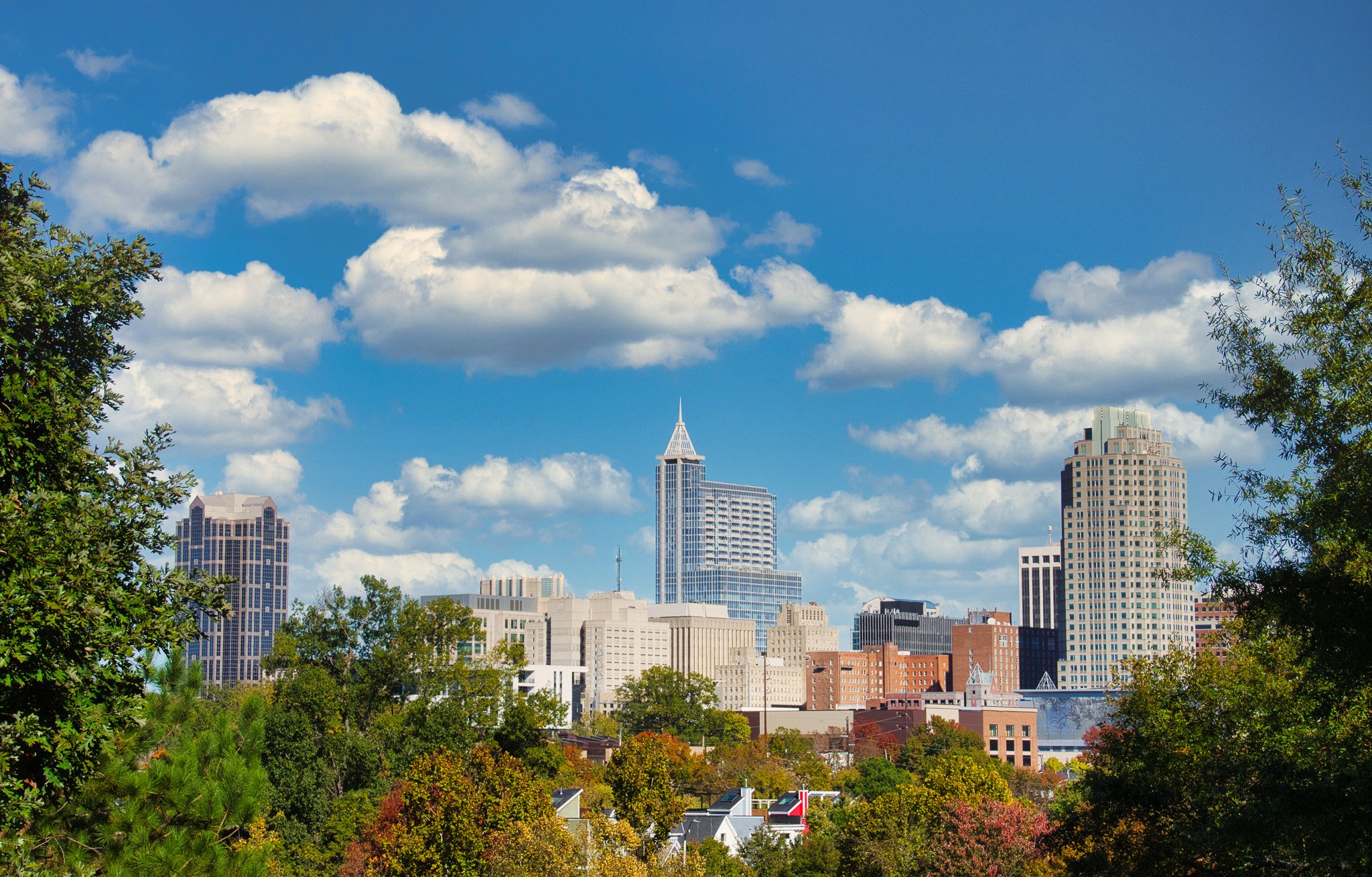Raleigh, North Carolina, has earned its reputation as the Southeast’s fastest-growing city, attracting residents with its blend of affordability, economic opportunity, and vibrant lifestyle. Outpacing regional competitors like Atlanta, Charlotte, Charleston, and Nashville, Raleigh offers a unique combination of factors that make it a top destination for homebuyers, professionals, and families. This article explores the key drivers behind Raleigh’s growth, current housing market trends, and why now is an opportune time to buy or sell in this dynamic city.
Affordable Housing in Raleigh
Raleigh’s housing market stands out for its affordability compared to other major Southeast cities. The median home price in Raleigh is approximately $436,000, notably lower than in Atlanta and Charlotte. Homes in Raleigh sell quickly, with an average time on the market of just 27 days, reflecting strong demand and a competitive yet accessible market. This affordability makes Raleigh an attractive option for first-time homebuyers and those seeking value without sacrificing quality.
Comparison with Regional Cities
Compared to Atlanta and Charlotte, where median home prices are higher, Raleigh offers a more budget-friendly entry into homeownership. For example, Atlanta’s median home price is closer to $450,000, and Charlotte’s is around $440,000, making Raleigh a cost-effective alternative.
Lower Cost of Living
Raleigh’s cost of living is approximately 3% below the national average, providing a significant advantage over Atlanta (5% above the national average) and Charlotte (2% above). This lower cost allows residents to enjoy a higher quality of life, with more disposable income for dining, entertainment, and savings. The affordability extends beyond housing to everyday expenses, making Raleigh a financially appealing destination.
Thriving Job Market
Raleigh’s economic vitality is driven by its position within the Research Triangle, a region renowned for its concentration of high-tech companies, research institutions, and universities. Major employers like IBM, Cisco, and Red Hat, alongside North Carolina State University, create a robust job market, particularly in technology, biotechnology, and pharmaceuticals. Raleigh’s low unemployment rate and consistent job growth make it a magnet for professionals seeking career opportunities.
Economic Stability
The diversified economy, with strengths in technology, healthcare, and education, insulates Raleigh from economic downturns, ensuring long-term stability for residents and investors. This economic resilience is a key factor in Raleigh’s rapid population growth, which has surged from 276,000 residents in 2000 to over 1.2 million in the greater Raleigh area today.
Family-Friendly Lifestyle and Top Schools
Raleigh is a haven for families, offering top-rated public and private schools that cater to diverse educational needs. The city’s vibrant cultural scene includes museums, breweries, and an abundance of parks, providing recreational opportunities for all ages. From the North Carolina Museum of Art to the sprawling William B. Umstead State Park, Raleigh combines urban amenities with natural beauty, making it an ideal place to raise a family.
Cultural and Recreational Highlights
Raleigh’s family-friendly lifestyle is enhanced by its moderate climate and access to cultural attractions. The city’s breweries, such as Raleigh Beer Garden, and its numerous festivals create a lively community atmosphere that appeals to both young professionals and families.
Current Market Trends and Mortgage Rates
The Raleigh housing market is dynamic, offering opportunities for both buyers and sellers. Understanding current trends and mortgage rates is crucial for making informed decisions.
Mortgage Rates Forecast
As of July 2025, 30-year fixed mortgage rates in North Carolina are around 6.9%, according to financial reports. Forecasts suggest rates may dip to 6.2% by late 2025, but Federal Reserve Chair Jerome Powell has indicated a cautious approach due to inflation and tariff concerns, which could delay rate cuts. For a $550,000 home, a 6.9% rate translates to a monthly payment of approximately $3,650, with potential savings of hundreds annually if rates decrease.
Buyer Advantages
Buyers benefit from an 18% year-over-year increase in housing inventory, with homes staying on the market for about 50 days on average. In January 2025, 27% of homes sold below listing price, providing negotiation opportunities.
Seller Opportunities
Sellers can capitalize on strong demand, particularly in the summer, fall, and winter of 2025, when 16% of homes sold above listing price. This trend is expected to continue if mortgage rates ease, driven by the Triangle area’s robust market.
Comparison with Other Southeast Cities
Raleigh stands out when compared to other Southeast cities. Atlanta and Charlotte, while offering larger job markets, have higher housing costs and living expenses. Charleston and Nashville, known for their charm, lack Raleigh’s tech-driven economic growth. Raleigh’s unique blend of affordability, job opportunities, and quality of life makes it a top contender.
| City | Median Home Price | Cost of Living (% vs. National Average) | Key Economic Driver |
|---|---|---|---|
| Raleigh, NC | $436,000 | -3% | Tech (Research Triangle) |
| Atlanta, GA | ~$450,000 | +5% | Business/Finance |
| Charlotte, NC | ~$440,000 | +2% | Finance/Banking |
| Charleston, SC | ~$475,000 | +4% | Tourism |
| Nashville, TN | ~$460,000 | +3% | Music/Healthcare |
Why Now is the Time to Buy or Sell in Raleigh
Raleigh’s housing market offers opportunities for both buyers and sellers. Buyers can leverage increased inventory and negotiation power, while sellers benefit from strong demand and potential for above-listing-price sales. The city’s economic growth, affordability, and lifestyle advantages make it an ideal time to invest in Raleigh real estate. If you’re ready to make Raleigh your home or navigate its thriving housing market, contact Carolina’s Choice Real Estate at (919) 844-1152 to secure the best deal in this dynamic city.


